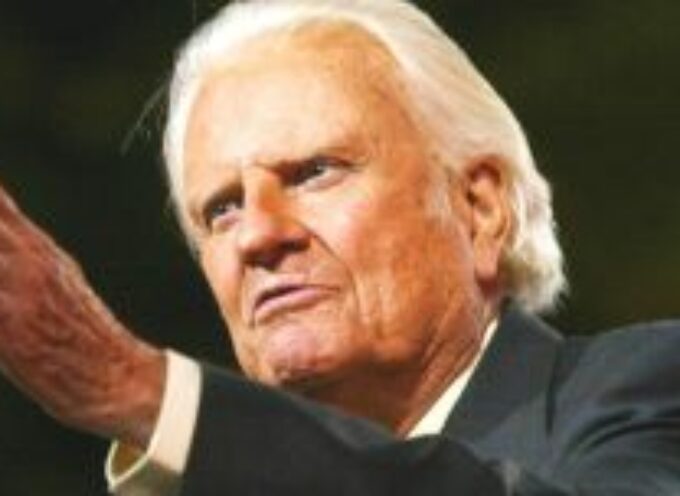After having received Edith Eger’s The Gift from a friend, I was pleasantly surprised that it turned out to be one of the best books I’ve read in recent years. I’m generally skeptical of “self-help” books—often finding them simplistic and sing-songy—but The Gift is different. It is a heartfelt, wise, and eloquent book.
The author is a Holocaust survivor and renowned psychologist who works primarily with trauma survivors. She writes The Gift to help people become who they truly are. Offering “freedom” as the ultimate key to becoming one’s true self, she recommends twelve ways to free oneself from spiritual and psychological “prisons.”
In recognition of the book’s value, I provide a synopsis of the twelve prisons, followed by a few positive reflections:
Twelve Prisons
- Victimhood: Often, we imprison ourselves by viewing life through the lens of victimhood. Although each of us may is a victim in one way or another, an inordinate focus on our victimhood will rot our soul. In other words, although we do not get to choose what happens to us, we do get to choose how we respond. How should we respond? Eger recommends viewing ourselves as survivors rather than victims, and framing our experience of victimhood as a way to learn about life and about ourself.
- Avoidance: Sometimes, we trap ourselves by avoiding suffering. Eger argues that, when we experience pain, we can either sink into depression or we can liberate ourselves through expression. We should allow ourselves to feel, she writes, “keeping company” with our feelings. In other words, it’s not the feelings that come out of us that makes us sick, but the feelings that stay in us unprocessed.
- Self-Neglect: Many of us find ourselves in a prison of self-neglect, meaning that we cannot accept who we are and thus rely on others’ affection, approval, or attention. Imprisoned by self-neglect, we tend to confuse who we are with what we do; we conflate our achievements with our worth. But, as Jesus exhorted, we must love others as we love ourselves; we should practice appropriate self-love so that we can love others plentifully.
- Secrets: Sometimes, we find ourselves enslaved by secrets. The secret might be something shameful that has been done to us, or it might be something shameful we have done. But we must bring our secrets to light, owning the truth about our self. If we do not, we are disowning a part of our true self.
- Guilt and Shame: Sometimes we are imprisoned by guilt or shame. The way out of guilt is to show proper remorse for a harmful mistake we’ve made or a wrong we’ve committed; this allows us to make amends and move past our grief. The way out of shame is similar, except that often shame can involve something wrong that has been done to us rather than something wrong we have done; in this instance, we must realize that another person’s actions should not control our view of our self. We must replace shame with kindness toward ourselves, with acceptance of our whole self.
- Grief: We become enslaved by grief cannot find a way to accept life on life’s terms. We experience the painful reality that, although we expected one set of outcomes, life has unfolded in unexpected and unanticipated ways. We must allow ourselves to feel grief, rather than suppressing it, while at the same time moving through and past it. In other words, time doesn’t really heal all wounds; rather, time only heals wounds if we are doing what is necessary for the healing.
- Rigidity: At the bottom of most relational conflict is rigidity. When we find ourselves in conflict, we tend to “negotiate” with the other person by convincing them to conform to our point of view. But that approach leads to perpetual conflict—whether passive, aggressive, or passive-aggressive. To break free from the prison or rigidity, Eger instructs us to hold onto our convictions while relinquishing the need for power and control, and to resist having unrealistic expectations that will cause resentment when those expectations are not met.
- Resentment: Eger argues that the biggest obstacle to intimacy is low-level, perpetual anger and irritation. This low-level anger becomes resentment, and resentment rots the soul and kills relationships. The irony is that when we resent, we think it’s the other person who is trapping and burdening us—but the real culprit is our own unrealistic expectations.
- Fear: Many of us have been paralyzed by fears that we will experience devastation in the form of financial insecurity, physical harm, unrequited love, etc. We generally form those fears early in life, and we hold onto the fear, thinking that our vigilance will protect us. But the fears often become self-fulfilling prophecies. To break free form the fear, we need to learn to live in the present rather than the future, and to grow rather than remain stagnant.
- Judgment: Often we are imprisoned by judgment, but a judgmental life rots the soul, and robs our ability to enjoy the present and appreciate the people in our lives. Thus, we must let go of judgment and choose compassion. Even when our negative judgment of another person is accurate, we can allow that person’s negative characteristics to teach us serenity and compassion.
- Hopelessness: When we find ourselves imprisoned in the dark cave of hopelessness, we sometimes wish we were not awake, or perhaps even wish we were not alive. In the midst of seemingly hopeless circumstances, therefore, we must cultivate curiosity about the future. We must realize that, although life if full of pain and suffering, if we can manage to survive today, we will be free tomorrow.
- Unforgiveness: When we cannot forgive other people for what they’ve done to us, we are shackled emotionally, spiritually, psychologically, and even physiologically. Thus, we must forgive. If not, we systematically diminish—and even destroy—ourselves. To live in a state of unforgiveness is like drinking poison regularly but expecting the other person to die from it. Eger argues that there is no forgiveness without rage, and so we must channel our anger rather, than suppressing it, so that it eventually will dissolve.
The Gift of The Gift
The main takeaway from this book is an eloquent and moving confirmation of something I’ve been learning over the past couple of years: that we must face life on life’s terms, learning to live a reasonably happy life no matter the circumstances. By “facing life on life’s terms,” I mean that we must have the serenity to accept the people and things in life we cannot change (e.g. difficult people, traumatic events), the courage to change the things we can (e.g. our own inner response to reality), and the wisdom to know the difference.
If we are going to cultivate the ability to face life on life’s terms—rather than “facing” life as we wish it to be—we must be flexible in our expectations regarding life’s circumstances. We must meet others as they are, not as we expect them to be. We must accept life’s events as they are, not as we wish they would have been.
In many ways, Eger’s The Gift can be viewed as psychological exposition of the apostle Paul’s statement: “I have learned to be content whatever the circumstances. I know what it is to be in need, and I know what it is to have plenty. I have learned the secret of being content in any and every situation, whether well fed or hungry, whether living in plenty or in want. I can do all this through him who gives me strength.” Paul was content despite extraordinarily unfair and painful circumstances—beatings, floggings, unjust imprisonment. If he could cultivate contentment, so can we.
Subscribe
Never miss a post! Have all new posts delivered straight to your inbox.







